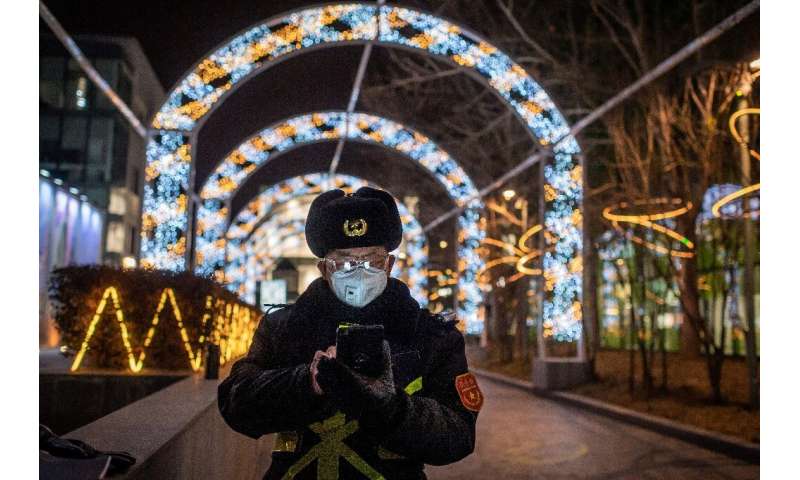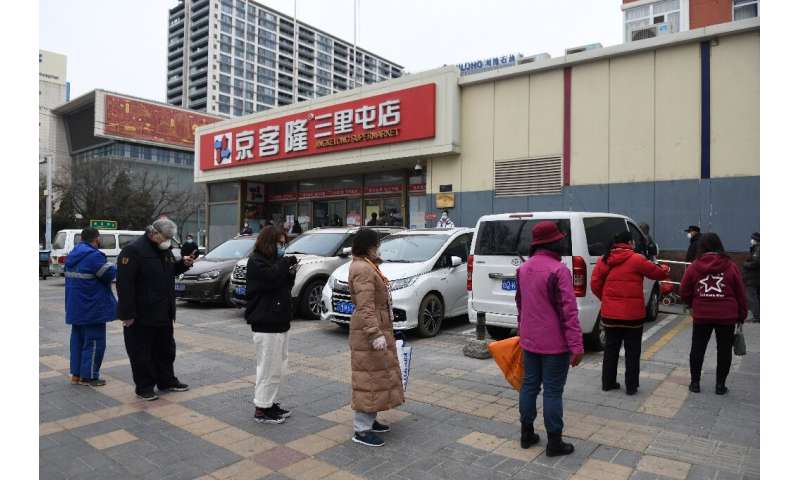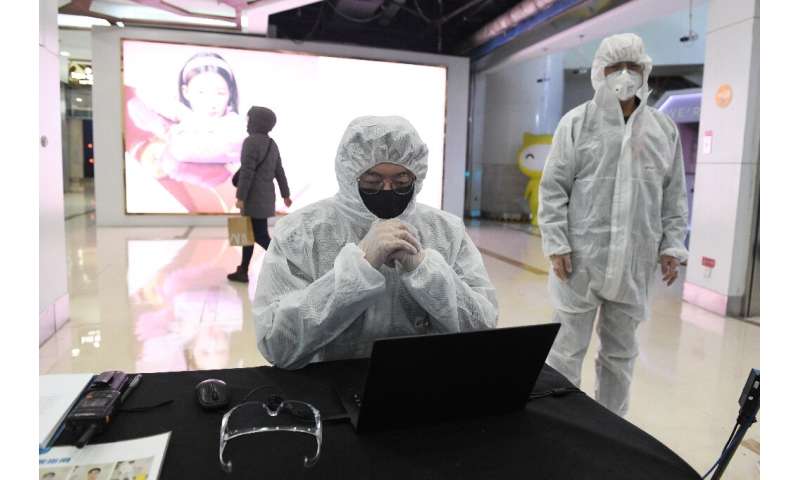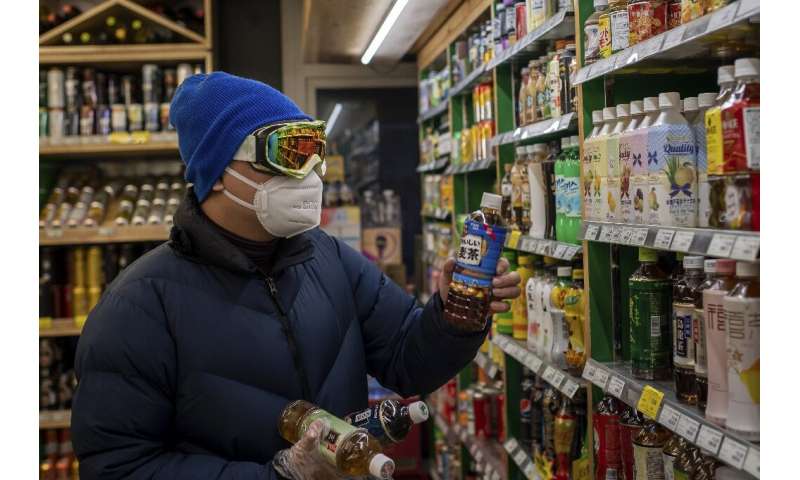
Fearing a resurgence of crowds as coronavirus cases drop, Beijing is not taking any chances, limiting numbers in parks, keeping shoppers apart in supermarkets and preventing cinemagoers from sitting close together.
In China—where the new disease has killed nearly 2,800 people—the spread of infections has slowed as many businesses remain shuttered and residents are encouraged to stay at home.
But that has not led to looser controls in the capital, which saw a fresh cluster of cases this week and two more deaths reported Friday.
This week, Beijing authorities announced new rules in a bid to disperse crowds in the city of over twenty million people, including many migrant workers from other regions.
Supermarkets must allow an average of two square metres per customer—a mandate which not only forces shops to track how many patrons enter, but also means shoppers have to wait outside once stores hit maximum capacity.
“If customers are in a rush, then they won’t buy anything,” said Jia Hongye, an employee at Jingkelong, a Chinese grocery store chain.
At her shop, only 12 to 13 customers are allowed inside to maintain the right ratio, she told AFP.
The store has also marked the area by the cash register with tape spaced one metre apart to remind people to keep their distance, added Jia.

At another supermarket, patrons queued around the parking lot while staff collected passes from leaving customers—used to track the number of people inside—before drenching them in disinfectant and handing them, dripping, to the next shopper.
“Only an extremely small number of people who are unreasonable” will complain about the new system, said an employee, who only offered her surname Hu.
With the epidemic stretching on for so long, customers’ awareness of safety and hygiene is “pretty high”, she told AFP.
Spring approaching
To prevent crowds from gathering, Beijing authorities have also tightened admission into its parks, especially as spring approaches.
After a spike of activity over the weekend, reported official news agency Xinhua on Tuesday, the city’s park authority has clamped down on the flow of visitors.
Ten of the capital’s top parks, including the historic Summer Palace, will cap the number of visitors at any given time to 30 percent of their maximum capacity, said Xinhua.
But on Thursday, the risk of cross-infection at parks appeared low, with Jingshan park—a venue affected by the new controls—almost deserted.

“It used to be very lively,” said Shang Lihua, a 70-year-old at Beihai park, also within the purview of the new rules.
Shang, who used to visit the park and join others to sing and dance, told AFP she had not visited since the epidemic started.
But now that the “epidemic has made a turn for the better”, she said she wanted to come and check out the park.
The restrictions are “necessary”, said Li, a 62-year-old man at Beihai, who only offered his surname.
A small percentage of visitors will not wear face masks inside the park—and will even spit in public, he told AFP.
No profit
Other businesses in Beijing are under pressure to prevent new infections as the city gradually returns to work.
Cinemas in the city are allowed to re-open but must sell “non-adjacent tickets” in every other row, Xinhua said, spreading out cinemagoers.

Some buildings are using “restricted lift” modes where they limit the people riding in each elevator to five at a time.
“The costs have definitely increased,” said Zhi Yuan, store manager at a Beijng hair salon.
To keep customers safe, the salon uses disposable towels and disinfects the shop once every two hours, said Zhi, who wore a surgical mask and eye goggles.
But these added expenses come as the number of daily customers—which in normal times can exceed 100—has dropped to less than 50, he added.
“We won’t make a profit,” he said.
Stores and restaurants have also had to limit their business hours.
At Sanyuanli Market, operating hours have been slashed by three hours, said the manager, who only offered his surname Wu.
“This is a frontline industry,” he told AFP, explaining that staff faced risk of infection.
Source: Read Full Article
